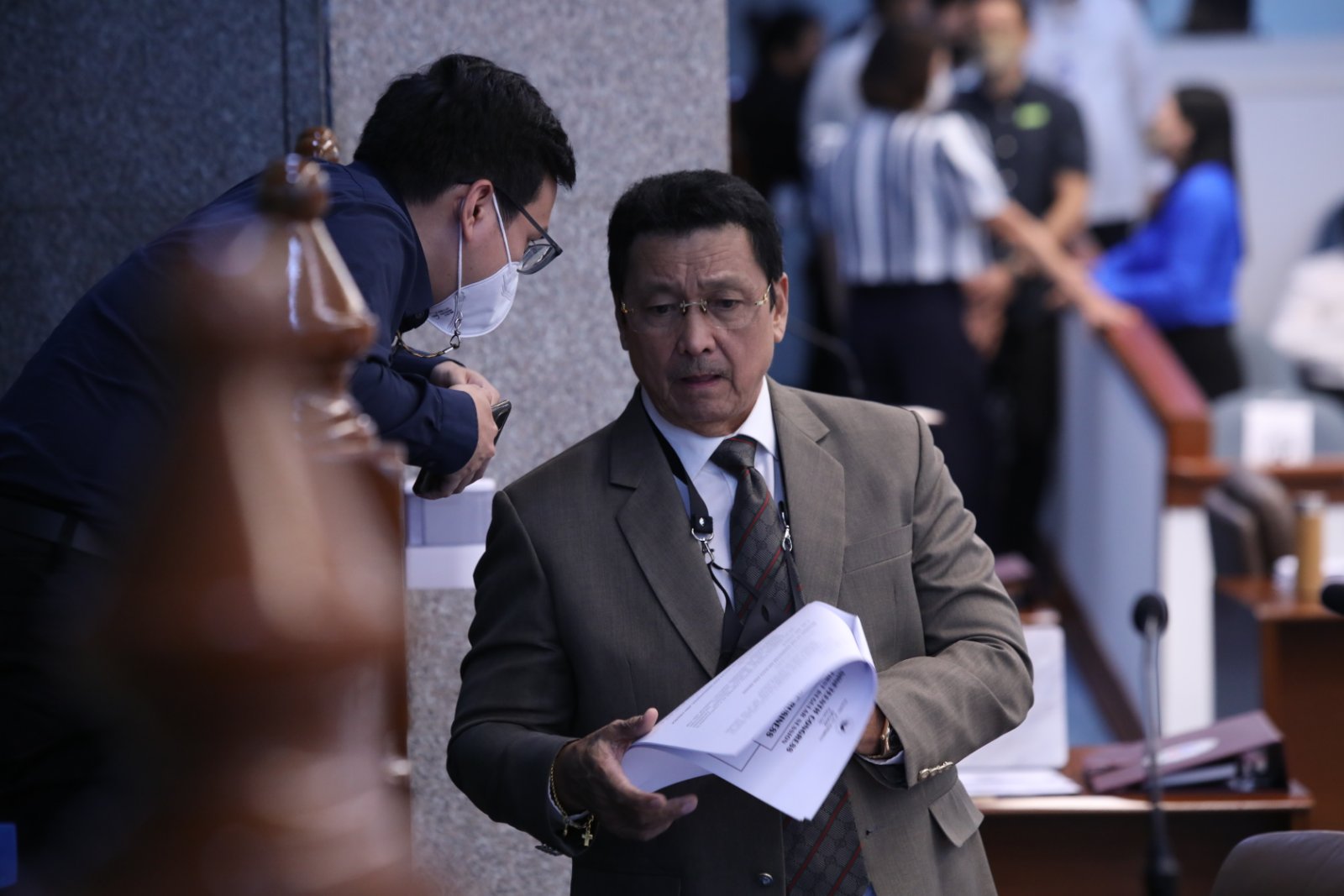Lapid files bill giving college students loans for living expenses
MANILA, Philippines — Senator Lito Lapid has filed a measure to give college students long-term personal loans for living expenses.
Senate Bill No. 274 aims to create the College Living Expenses Financing (CLEF) program to support college students with good academic standing.
The measure directs the national government to set up a loan guarantee fund for student loans to be provided by the Development Bank of the Philippines (DBP) and the Land Bank of the Philippines (LBP).
While he recognizes that Republic Act No. 10931 provides free tuition and exemption on other fees for students of state colleges and universities, Lapid said there are many obstacles to making quality education accessible to all.
READ: Bill seeking halt in student loan payments during crisis filed in Senate
Article continues after this advertisementHe said one such obstacle is the cost of living and other education-related expenses, discouraging qualified students in families below the poverty line from considering pursuing higher education.
Article continues after this advertisement“Libre man ang tuition para sa ating mga estudyante, batid kong marami pa ring nahihirapan tumuloy sa kolehiyo dahil wala silang mapagkukunan ng pangtustos para sa kanilang pamumuhay habang nag-aaral,” Lapid said in a statement on Friday.
(While tuition is free for our students, I know some still experience difficulties supporting themselves while they study.)
“Mas ramdam pa lalo ang problemang ito ng mga estudyanteng galing sa malalayong lugar at kailangan pang magbyahe at lumipat para makapag-aral. Kailangan na mabigyan sila ng pagkakataon na magkaroon ng pagkukunan ng pondo para sa kanilang tirahan, libro at iba pang gastusin habang nag-aaral sila,” Lapid said in a statement on Friday.
(This problem is even more felt when the students come from distant places and they have to rent spaces near their school. They should be allowed to find their sources of money for their boarding, school materials, and other expenses while they are studying.)
Lapid said the CLEF Program is a long-term personal loan program designed to provide for the living expenses of Filipino College students.
The loan will cover the following expenses:
a. board and lodging
b. living allowance
c. transportation costs
d. food expenses
e. uniforms and personal clothing
f. books and supplies
g. internet and digital connectivity expenses
h. other miscellaneous expenses
In the proposed law, CLEF would be available to Filipinos who are enrolled in courses leading to a bachelor’s degree at any institution of higher education that the Commission has approved on Higher Education.
Each eligible student shall be entitled to a maximum loan amount of P50,000 per semester and a maximum of P400,000, allowing up to five years of college enrollment.
The loan shall have a maximum term of 25 years and an interest rate lower than the prevailing interest rate subject to the discretion of the disbursing financial institutions.
The bill added that amortization should also start one year from the date of graduation or the end of the last semester of enrollment.
“Karapatan ng bawat Pilipino ang mabigyan ng pagkakataon sa de-kalidad na edukasyon at karapatan din ng bawat estudyante na makatanggap ng lahat ng tulong na kayang ibigay ng gobyerno,” he said.
(Every Filipino has a right to quality education. It is also their right to get help from the government.)
“Dito papasok ang loan na gusto ko sanang maisabatas para sa ating mga estudyante—loan na mabilis sanang maibibigay sa bawat estudyanteng mag-aapply at loan na hindi mabigat oras na kailangan ng bayaran dahil maliit lamang ang magiging interes nito,” Lapid added.
(Here’s where the loans I want to make mandatory come in: qualified students can get them quickly, and the low-interest rates won’t add much to their debt loads.)
According to the bill, the administration of the CLEF Program will be a shared responsibility of the CHED— which shall process and endorse the loan application requirements of eligible students and the disbursing financial institutions, which shall release the amounts based on an approved disbursement program agreed with the student.
